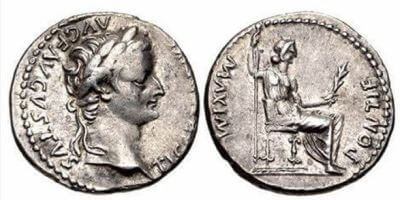GOVERNMENT 08 – Legitimacy of Government in the NT
Paul on Government in Romans 13:1-7
Romans 13:1
“Let every person be subject to the governing authorities”
- God commands civil obedience, obedience to law, to government, to authorities
- God stands behind the institution of government
- Any government is better than no government (Anarchy is the most brutal)
- Rebellion and law breaking is sin
Romans 13:1-2
“for there is no authority except from God and those authorities that exist have been instituted by God. Therefore whoever resists authority resists what God has appointed, and those who resist will incur judgment”
- all authority comes from God who has all authority, legitimately and actually
- all authority is instituted by God (parental, political, spiritual)
- to have authority is better than to have no authority (even if that authority is bad)
- Maybe not every ruler rules by the will of God (usurpers) but the institution of government is fully backed by God (whatever ruler)
- When Paul writes this command in 56 AD, Nero is the newly appointed emperor (!) > no picking and choosing
- What is authority? When does somebody have it? Is whoever sits on the throne’ automatically ‘having authority’? Is having power and having authority different?
- Yes, it is different. The will of the people alone gives legitimate authority (Deu 1:13).
- Then does any government of NT times have authority (for none was elected)? Probably yes, if not by election then by consensus?
- But is an evil government (a government abusing its power / using power against people) of God? Must it be obeyed? What are the limits to this obedience?

Romans 13:3-4
“For rulers are not a terror to good conduct, but to bad. Do you wish to have no fear of the authority? Then do what is good, and you will receive its approval. For it is God’s servant for your good. But if you do what is wrong, you should be afraid, for the authority does not bear the sword in vain! It is the servant of God to execute wrath on the wrongdoer.”
- This assumes a basically reasonable government (most government will be reasonable, for otherwise it will dangerously undermine itself and bring itself down).
- God instituted government for this purpose: to bear the sword, to be a terror to bad conduct, to execute wrath against the wrongdoer. Concise summary!
- The government’s job is not to show mercy to the trangressor, not to pamper the violent, nor to take care of everybody’s every need.
- Are there exceptions? Where are the limits? When is civil disobedience justified and right? Are their examples in the Bible?
- Acts 4:8, 4:19-20 seems to show an example of the apostles defying the elders. Is this political or spiritual authority? Can a government instruction be an excuse?
Romans 13:5
“Therefore one must be subject not only because of wrath but also because of conscience.”
- Fear the government. Understand God’s will is lawfulness, and therefore government and authority. Agree with it and obey it from your heart.
- Blind, fearful obedience is not good enough (though it keeps you out of trouble)
- Paul introduces conscience as ground to obey the government. What if conscience tells me not to obey?
Romans 13:6-7
“For the same reason you also pay taxes, for the authorities are God’s servants, busy with this very thing. 7 Pay to all what is due them taxes to whom taxes are due, revenue to whom revenue is due, respect to whom respect is due, honor to whom honor is due.”
- Right of government to levy taxes is asserted for the services it renders
- It can only claim dues (meaning ‘rightfully theirs’), not bribes, only what is lawful
John the Baptist to tax collectors and soldiers


Luke 3:12-14
“Even tax collectors came to be baptized, and they asked him, “Teacher, what should we do?” 13 He said to them, “Collect no more than the amount prescribed for you” 14 Soldiers also asked him, “And we, what should we do?” He said to them, “Do not extort money from anyone by threats of false accusation, and be satisfied with your wages.”
- John doesn’t deny the government’s right to taxes > affirmation of GOV
- John doesn’t tell soldiers that they shouldn’t be soldiers > affirmation of military
- John addresses abuses of position, role, authority, power. Example: unrighteous gain, unofficial fees, bribes, threats, accusations, false implication, extortion.
- Each position, role, authority has its own temptations or pathways of abuse, but the principle remains the same: do not abuse a given authority for selfish means
- Command to be satisfied with wages, to remain within the bounds of one’s job,
Jesus and the temple tax
Matthew 17:24-27
“When they reached Capernaum, the collectors of the temple tax came to Peter and said, “Does your teacher not pay the temple tax?” He said, “Yes, he does.” And when he came home, Jesus spoke of it first, asking, “What do you think, Simon? From whom do kings of the earth take toll or tribute? From their children or from others?” 26When Peter said, “From others,” Jesus said to him, “Then the children are free. 27However, so that we do not give offense to them, go to the sea and cast a hook; take the first fish that comes up; and when you open its mouth, you will find a coin; take that and give it to them for you and me.”
- Jesus does pay temple tax, but seems to think it optional. Or is it optional for him as God, and he just uses it to teach Peter about son-ship?
- The thing in question is temple tax (CHU), but Jesus in his comments speaks about ‘kings’. So CHU, GOV here have the same tax rights? GOV taxes optional?
Questioning Jesus about taxes to Caesar
Mt 22:15-22, Mk 12:13-17, Lu 20:20-16
“Then they sent him some Pharisees and some Herodians to trap him in what he said. Teacher, we know that you are sincere and show deference to no one; for you do not regard people with partiality, but teach the way of God in accordance with truth. Is it lawful to pay taxes to the emperor or not?”
- They pose as honest seekers to trap Jesus
- They use flattery to the point of lying (Pharisees compromising the beloved law)
- Pharisees and Herodians here willingly cooperate in spite of deep animosity
- They simply ask a question they can’t agree on: is the Roman emperor lawful authority? (Herodians: ‘yes!’, Pharisees: ‘no!’),
- This is a trap, for if Jesus says ‘yes’, this will cost him popularity as a collaborator, if he says ‘no’, he will be branded as conspirator rebel, condoning a violent uprising.
“Why are you putting me to the test? Bring me a denarius … whose head is this, and whose title? They answered: the emperor’s”
- Jesus is not fooled, he understands the trap
- Unlike them Jesus is not using flattery, he is not deceiving, he is talking straight, honest and challenges them by exposing their hidden agenda.
- Jesus breajs the one dimensional question (yes? no?) open by a practical illustration, arousing interest, involving them, forcing them to start thinking again
“Give to the emperor the things that are the emperor’s and to God the things that are God’s”. And they were utterly amazed at him.
- They do not think this an evasion, are amazed, silenced, shamed.
- What is the assumption in their thinking that Jesus doesn’t agree with? > that to accept the emperor’s leadership means to refuse God’s leadership
- Jesus declares both leaderships legitimate (the emperor’s and God’s), though they are different
- Jesus does not specify what exactly is due to whom. How can we understand this?

The Tiberius Denarius
On one side: ‘Ti(berius) Ceasar Divi Aug(usti)’
= Emperor Tiberius, son of Augustus
On the other side: a symbol of Rome’s idolatrous main cult (depicting a Vestal virgin), calling the Emperor
‘Pontifex Maximus’ (= High Priest of the Roman religion)
> it seems Jesus is pointing out the different and legitimate roles of government and God, but also forbidding trespass: the limits of what Government can claim
Government has a right to
- tax to fulfill the functions it is responsible for
- demand obedience to the law of the land
- demans submission as far as the law requires
Government does not have the right to
- demand mental agreement, control over decisions
- demand unconditional, moral obedience
- demand worship. Jesus defies the rising deification & worship of the Roman emperor. In a few decades’ time refusing to worship the Emperor will be a crime punishable by death (2nd half of 1st century).
Jesus and rebel movements
John 6:15
“When Jesus realized that they were about to come and take him by force to make him king, he withdrew again to the mountain by himself.”
- Jesus well knows and deliberately avoids rebellious & violent freedom-movements
- He could have become the messiah-leader of it, but he refuses and evades.
- His strategy: backyard teaching in Galilee, keep moving, escape when needed, instruct people not to tell so as to have enough time to disciple people and teach more deeply. Heart transformation, not political movement.
Jesus and violence in Gethsemane
Mth 26:52, Jhn 18:8-11, Luk 22:47-53
“Then Jesus said to him, “Put your sword back into its place, for all who take the sword, will perish by the sword.”
- Jesus will not resort to violence or let his disciples resort to violence, even in extreme or life-threatening situations, even when there is no legitimate process.
8 Jesus answered, “I told you that I am he. So if you are looking for me, let these men go.” …10 Then Simon Peter, who had a sword, drew it, struck the high priest’s slave, and cut off his right ear. The slaves name was Malchus. 11 Jesus said to Peter, “Put your sword back into its sheath. Am I not to drink the cup that the Father has given me?”
- Jesus calls on reason and lawfulness to make sure the disciples are not taken
- Jesus knows the will of God and has chosen it. He is neither ignorant nor a victim
“But Jesus said, “No more of this!” And he touched his ear and healed him.”
- Jesus undoes the fruits of violence, keeps extending love, grace and service.
Instructions to believers concerning Government
Titus 3:1
“Remind them to be subject to rulers and authorities, to be obedient, to be ready for every good work, 2 to speak evil of no one, to avoid quarreling, to be gentle, and to show every courtesy to everyone.”
- Paul instructs the believers to be subject to the government, to be obedient, law-abiding, constructive, contributing, giving citizens, to be self-controlled, not easily offended, appreciative, acknowledging, polite concerning GOV, but also in general
Prayer for Government
1 Timothy 2:1
“First of all, then, I urge that supplications, prayers, intercessions, and thanksgivings be made for everyone, 2 for kings and all who are in high positions, so that we may lead a quiet and peaceable life in all godliness and dignity. 3 This is right and acceptable in the sight of God our Savior, 4 who desires everyone to be saved and to come to the knowledge of the truth … 8 men should pray, … without anger or argument … 9 also women … dress modestly.”
- Believers need to pray, intercede and thank God for GOV … without anger, argument, self-display, self-focus
- Again be constructive, contributing, taking responsibility, giving, blessing, …
- GOV function is to allow people to lead peaceable, godly lives with dignity … this is linked to allowing the gospel and the knowledge of God to spread
- GOV’s job is to maintain lawfulness > which leads to peace and granting of human rights > which allows the gospel to spread and life to flourish
- GOV must grant right to life, right to safety, right to property, freedom of conscience, freedom of religion.